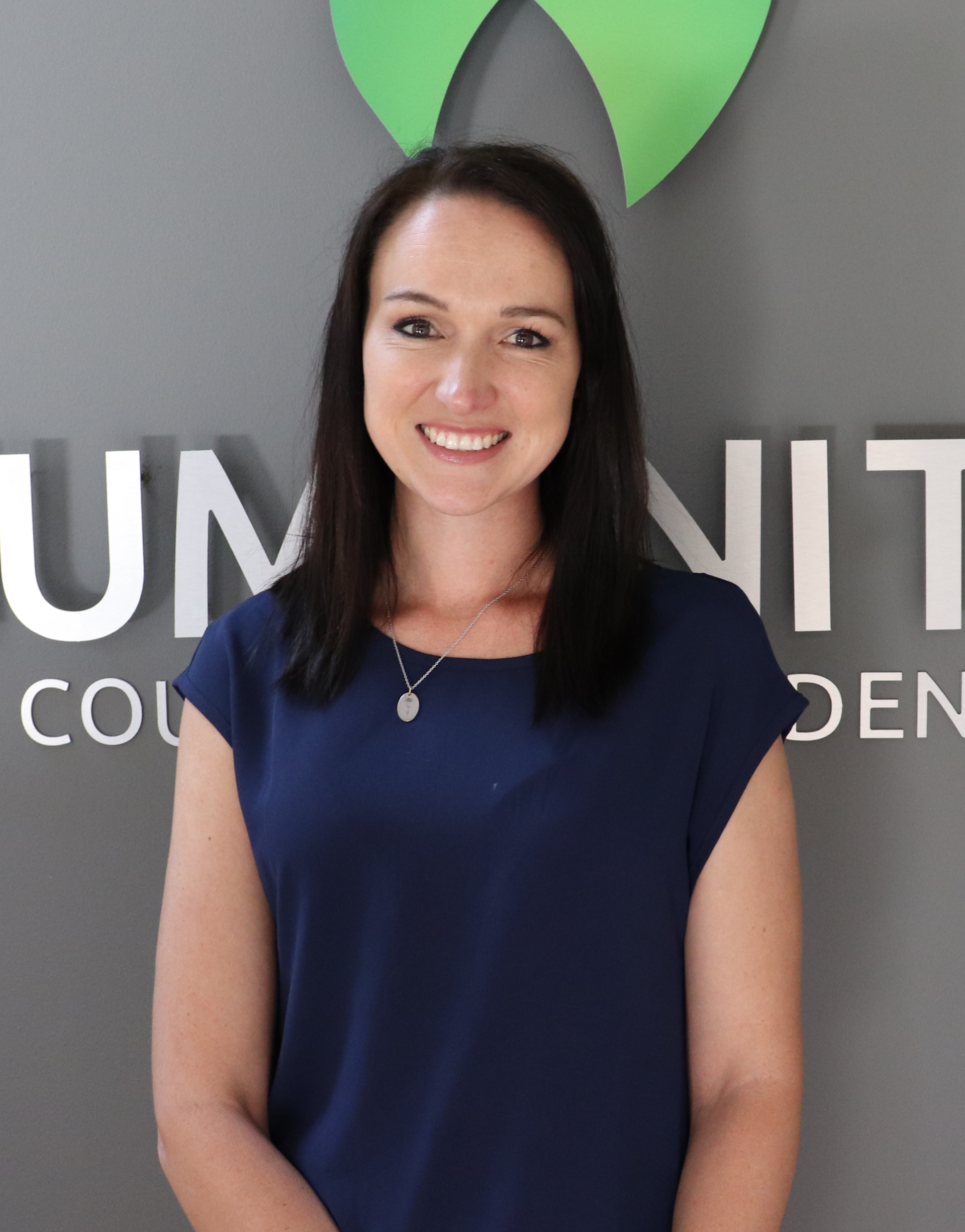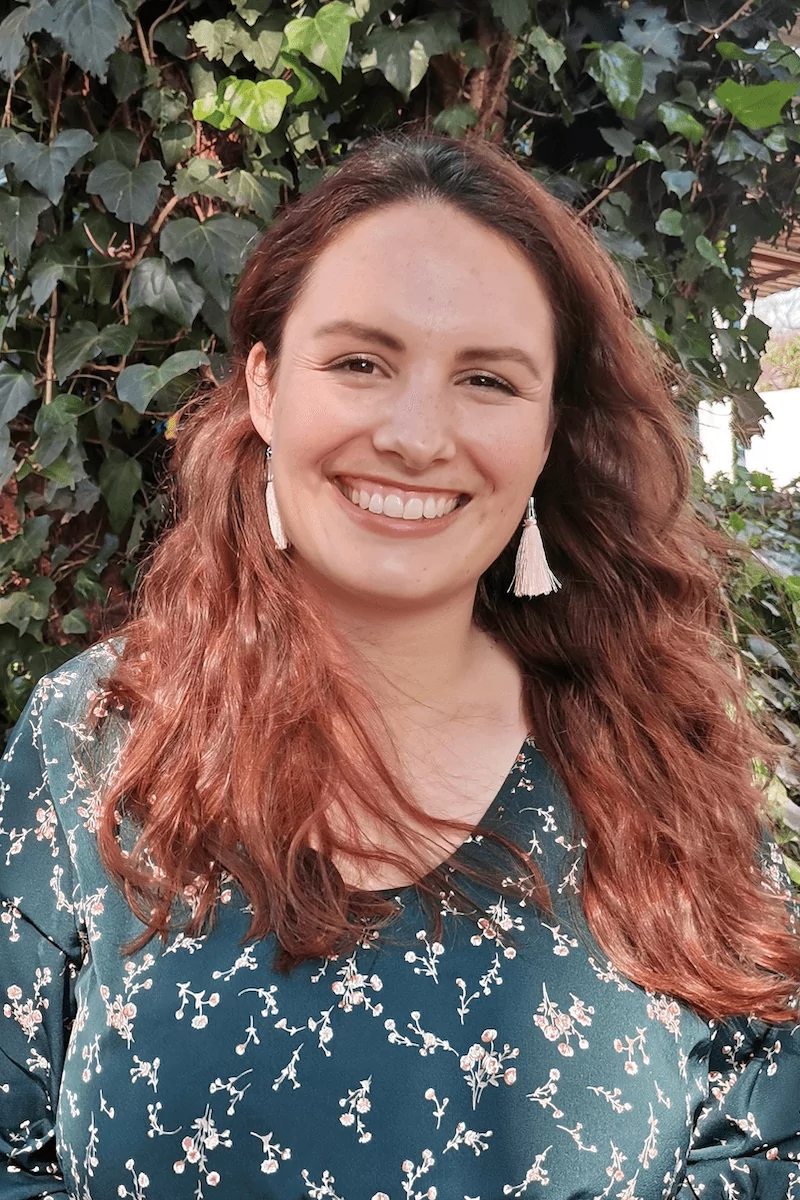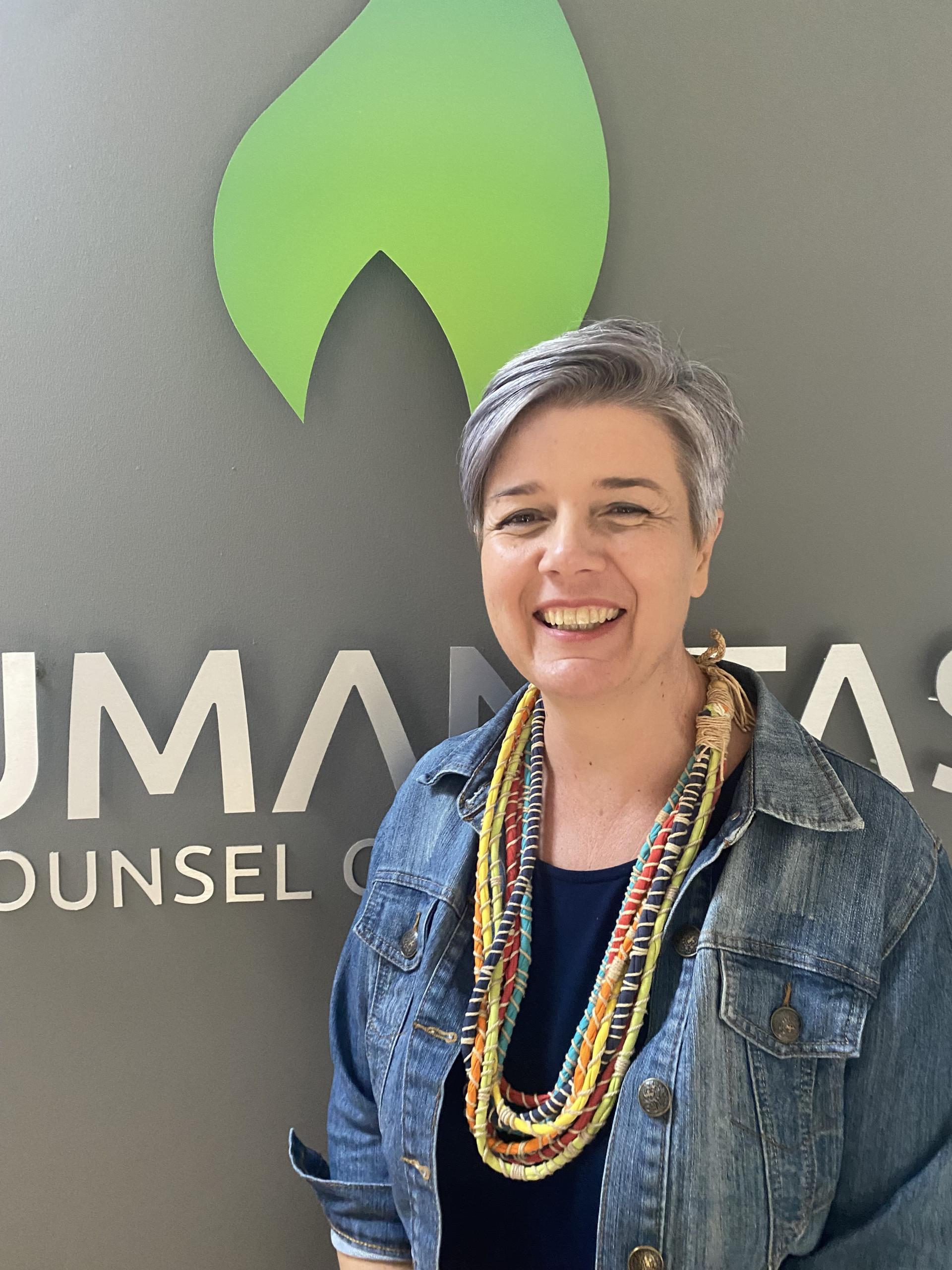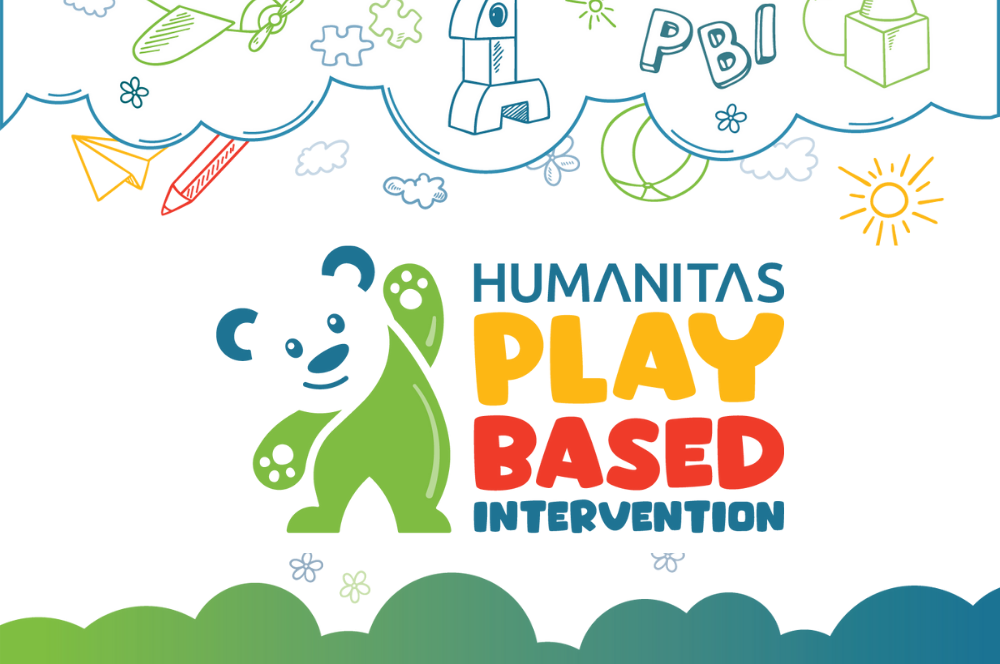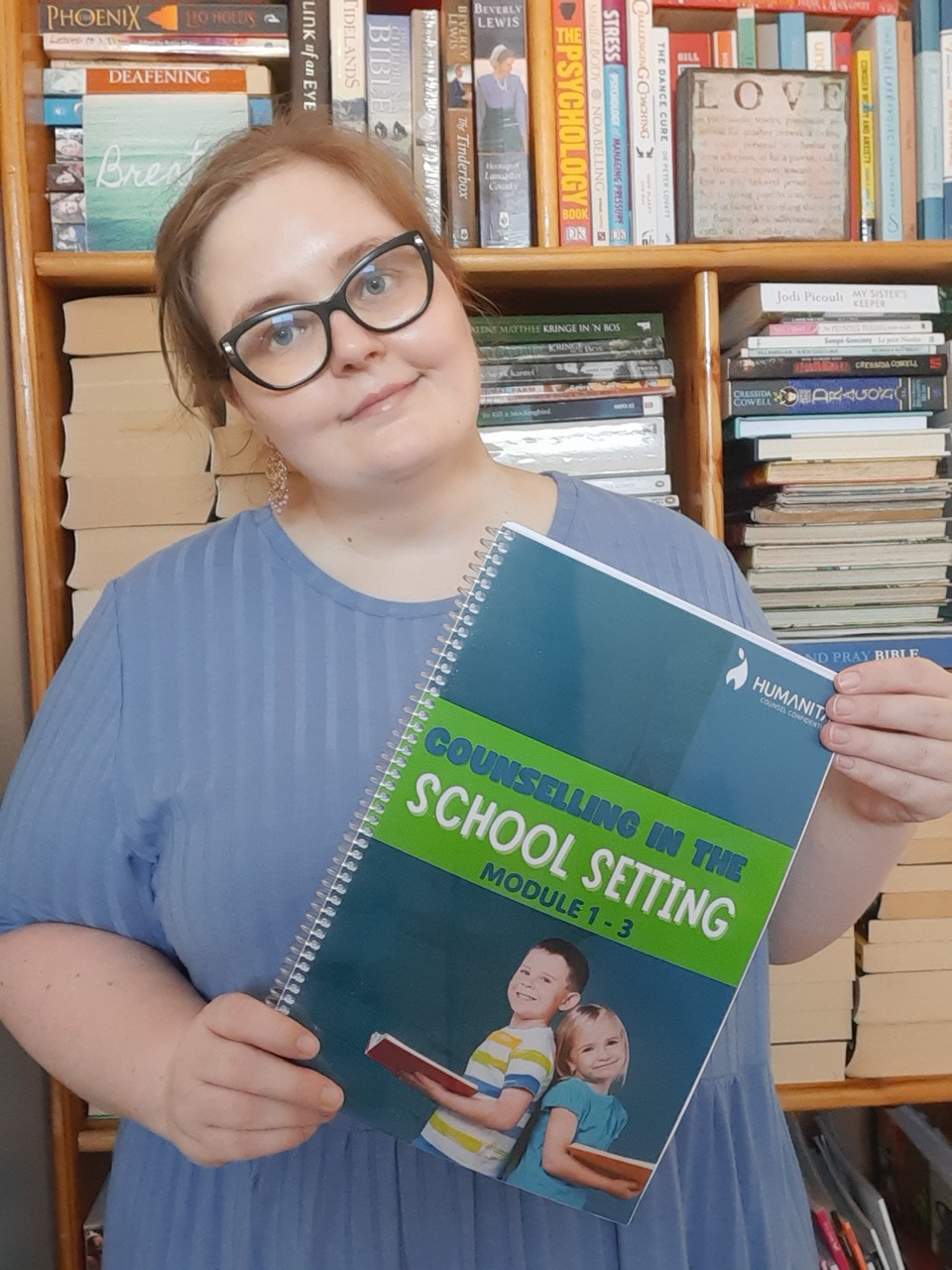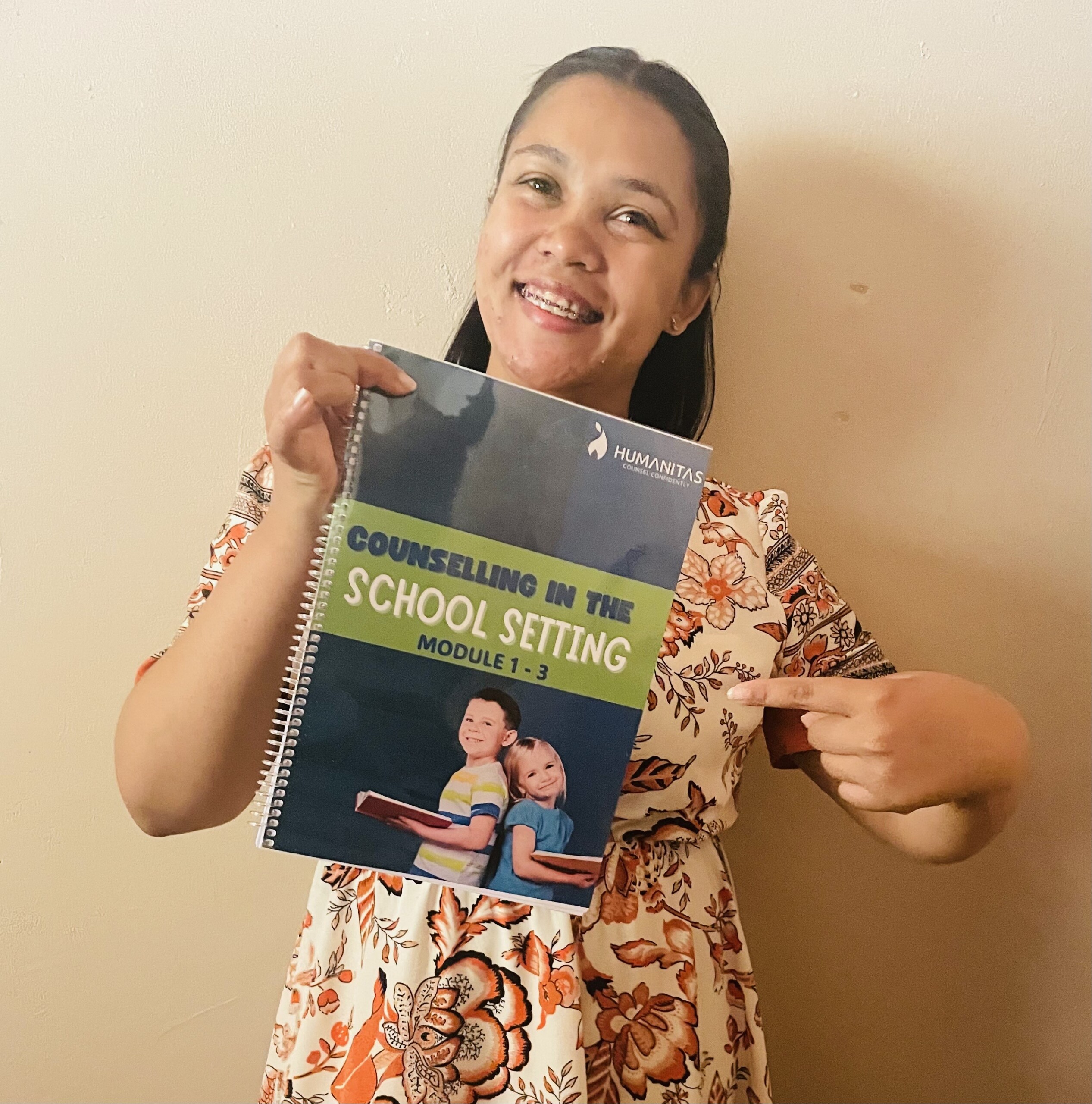Includes
Course Schedule
For any enquiries, please contact: Reception on 0712476656 or email: info@humanitas.co.za
Starts: 09 June 2025
Presenters
About the Specialisation in School Counselling Course
The Humanitas Specialisation in Counselling in the School Setting is a specialised online program tailored to empower school counsellors, specialist wellness counsellors, social workers, and teachers. It equips participants with the expertise to effectively address students’ academic, emotional, social, and behavioural needs within South African school environments.
The program, developed and presented by leading experts, explores essential topics such as counselling theories and techniques tailored for school settings, building effective counselling programs, navigating legal and ethical considerations, and strategies for engaging with diverse student populations in South Africa.
The course is designed as a self-paced study programme, allowing delegates to embark on this journey part-time. After completing the theoretical component, delegates will be required to attend three online interactive supervision sessions, scheduled on a monthly basis for in-depth case discussions.
Please note:
While the course briefly addresses special educational needs, its primary focus is on mainstream school settings. This program does not provide training as a special needs counsellor.
Course Outline
Throughout the course, participants will achieve the following objectives:
- Understanding the Role and Responsibilities of a School Counsellor: Gain insight into the multifaceted role of school counsellors and their unique responsibilities.
- Scope of Practice: Differentiate between the roles of counsellors and social workers within a school context.
- Counselling Theories and Techniques: Acquire knowledge of various counselling theories and techniques applicable to school settings, enhancing effectiveness in supporting students.
- Program Development and Interventions: Develop effective counselling programs and interventions tailored to students’ needs, fostering holistic support.
- Short-term, Goal-directed Counselling: Master the skills required to conduct short-term, goal-directed counselling sessions with learners, optimizing outcomes.
- Legal and Ethical Considerations: Navigate legal and ethical considerations in school counselling, including handling feedback, case notes, and reports with integrity.
- Facilitating Disclosure: Gain insights into ethically facilitating a child’s disclosure, ensuring a safe and supportive environment for students to express themselves.
- Working with Diverse Student Populations: Acquire skills for working with diverse student populations and those with special educational needs, promoting inclusivity and equity.
- Primary vs. High School Settings: Understand the nuances of counselling in primary versus high school settings, tailoring approaches accordingly.
- Collaboration and Communication: Enhance collaboration and communication with school staff, parents, and external agencies, fostering a cohesive support network.
- Crisis Intervention and Prevention: Learn crisis intervention and prevention strategies specific to school environments, ensuring timely and effective support during challenging situations.
By the end of this course, participants will be equipped with the knowledge, skills, and confidence to navigate the complexities of school counselling, making a profound difference in the lives of students and the broader school community. Join us on this journey to transform counselling practice in educational settings.
Minimum requirements:
- NQF level 7 in any relevant field (i.e. Psychology degree, Social work degree, Theology degree, Education, PGCE)
- Other interested persons with NQF level 7 qualifications can apply, and such application will be evaluated by a panel based on prior knowledge and experience, should tertiary fields not be listed above.
Important Information Regarding Registration and Scope
Please note: Completion of this course does not qualify participants for registration as a counsellor with any professional body. It is intended to equip individuals who are already working in a school setting with practical skills to better handle situations that may arise when engaging with learners in a counselling-related manner.
This course is designed for professionals already working within educational environments, providing practical tools to enhance their engagement with learners. It is not intended to lead to a qualification or the professional title of ‘School Counsellor.’
Structure Of The Course
The Counselling in a School Setting course is designed to be completed as a part-time specialization course, that can be completed with ease whilst being employed. The course stretches over a six-month period, which includes both a theoretical component as well as supervision opportunities to implement knowledge learned into practice.
- The course will be presented as online-interactive sessions as well as self-paced pre-recorded videos, that can be viewed at own pace.
- Delegates will have a period of 3 months to work through material provided, with online quizzes, assignments for submission as well as one interactive contact session on TEAMS.
- After completion of the three month theoretical period, delegates will have three supervision opportunities, hosted once monthly.
Difference Between the Play-Based Intervention Specialisation and the Counselling in the School Setting Course
Play-Based Intervention (PBI) Course vs. Counselling in the School Setting Course:
- Focus and Scope:
- Play-Based Intervention Course: Focuses on using play as a therapeutic intervention to help children express their emotions and process experiences. Play-based intervention involves long-term counselling/therapy with children, typically in private practices or specialized therapy centres.
- Counselling in the School Setting Course: Broadly addresses the academic, career, social, and emotional needs of students in schools. It equips individuals to offer short-term counselling and referrals, addressing student well-being in an educational setting, with a focus on academic support, crisis intervention, and social skills development.
- Target Population:
- Play-Based Intervention Course: Focuses specifically on working with children aged 3 to 12, addressing emotional, behavioural, or developmental issues.
- Counselling in the School Setting Course: Covers a wider age range, from early childhood to adolescence, and focuses on helping students navigate academic, social, and emotional challenges in a school environment.
- Skills and Techniques:
- Play-Based Intervention Course: Teaches specialized techniques such as symbolic play and sand tray, focusing on long-term therapeutic intervention.
- Counselling in the School Setting Course: Focuses on academic advisement, career guidance, crisis intervention, and individual/group counselling within the school setting, offering short-term support rather than long-term therapy.
- Professional Role and Setting:
- Play-Based Intervention Course: Graduates often work in counselling or therapeutic settings (private practices, mental health clinics), specializing in working with children through play-based techniques.
- Counselling in the School Setting Course: Graduates work in schools, offering emotional and academic support. They are part of the educational team, working with teachers, parents, and administrators to support students’ well-being.
While both courses emphasize valuable counselling techniques, this course will not lead to any formal qualification or registration as a counsellor.
Disclaimer
This course will not lead to any formal qualification or registration as a counsellor.
Those already working in school environments will gain valuable tools to enhance their ability to support students, but this is not a pathway to becoming a registered school counsellor.
Intake Dates
February 2025 Intake
Online interactive sessions: 10 February 2025
TEAMS contact session: 11 April 2025
Supervision Dates:
Supervision 1: 23 May 2025
Supervision 2: 20 June 2025
Supervision 3: 18 July 2025
June 2025 Intake
Online interactive sessions: 9 June 2025
TEAMS contact session: 8 August 2025
Supervision Dates:
Supervision 1: 19 September 2025
Supervision 2: 17 October 2025
Supervision 3: 14 November 2025
Frequently asked questions
Delegates who would be attending this training would generally fall in one of the following categories:
– Registered social workers (SACSSP) and/or counsellors (HPCSA/ASCHP) who are already working as school counsellors and would like to broaden their knowledge and understanding of the field.
– Social workers or counsellors, registered with a professional body who would want to receive additional training to be able to ethically and competently look for work as school counsellors.
– The many teachers who are employed by a school, finding themselves in a situation where they are responsible for learner’s emotional support, usually without having received any training to do so, whatsoever. They might include LO teachers who end up being the person learners are referred to if there are emotional concerns.
The certificate of completion that delegates will receive will then also depend on in which category the delegate finds him/herself in.
Please note that this training does not lead to registration with any professional body and is not accredited by higher education.
No, not anyone can apply, they would have to have an NQF 7 level qualification in a relevant field, such as social work, psychology, counselling or teaching.

